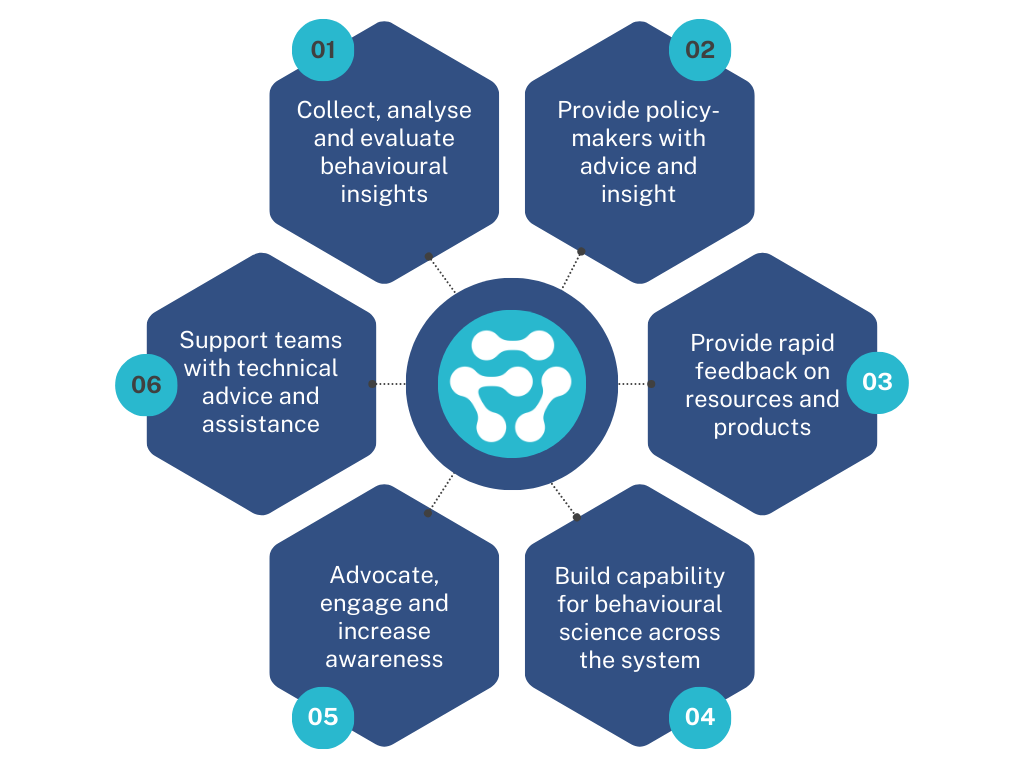Our Mission:
Providing specialist expertise on behavioural science, and developing the application of it, to improve health & wellbeing in Wales
We provide proactive and responsive support to stakeholders across the public health system, to optimise impact on health and well-being and reduce inequities. We offer specialist expertise, and connection to a network of academic and wider partners. Networking, collaborating and understanding stakeholder needs is allowing us to underpin activity to build capability, opportunity and motivation to routinely use behavioural science.
What is Behavioural Science?
Essentially it’s the systematic study of behaviour (observable action) – what enables it, what prevents it, and how best to elicit it. Unpacking how and why people, generally at a sub-population group level, respond to interventions, environments and stimuli, rather than relying on assumptions of how they should act, improves the chances of realising the objective of policy, service, communications – and of improving and protecting health and well-being.
Behavioural science combines theory, insights and methods from behavioural economics, cognitive, social and health psychology. This blended approach can help build an understanding of behaviours; what influences them; and to design and test improvements in interventions. Influences and responses often differ across segments of populations (by many characteristics, like age, gender, socio-economic status, geography, culture) – applying a behavioural science approach, to understand these differences and develop tailored activity, can help protect against ‘intervention generated inequality’ and to help redress inequities.
Behavioural Science Unit – For Health and Well-Being
The BeSci Unit provides specialist expertise on behavioural science, and champions and enables the increasingly routine application of it, to improve health and wellbeing in Wales. The Unit supports stakeholders in the wider public health system, to deliver a step change in improving health and wellbeing outcomes. It provides specialist support to integrate behavioural science as a way of optimising policy, services and communications designed to improve wellbeing; develops resources to increase the routine application of behavioural science; and facilitates the development of capability and capacity. Much of this work is delivered through partnerships with established units and organisations across diverse sectors and academic institutions.
Our work varies depending on time, priority, and resources. As per the World Health Organisations (WHO) document ‘setting up behavioural insight units for improved health outcomes – considerations for national health authorities’ our work revolves around six main streams.

